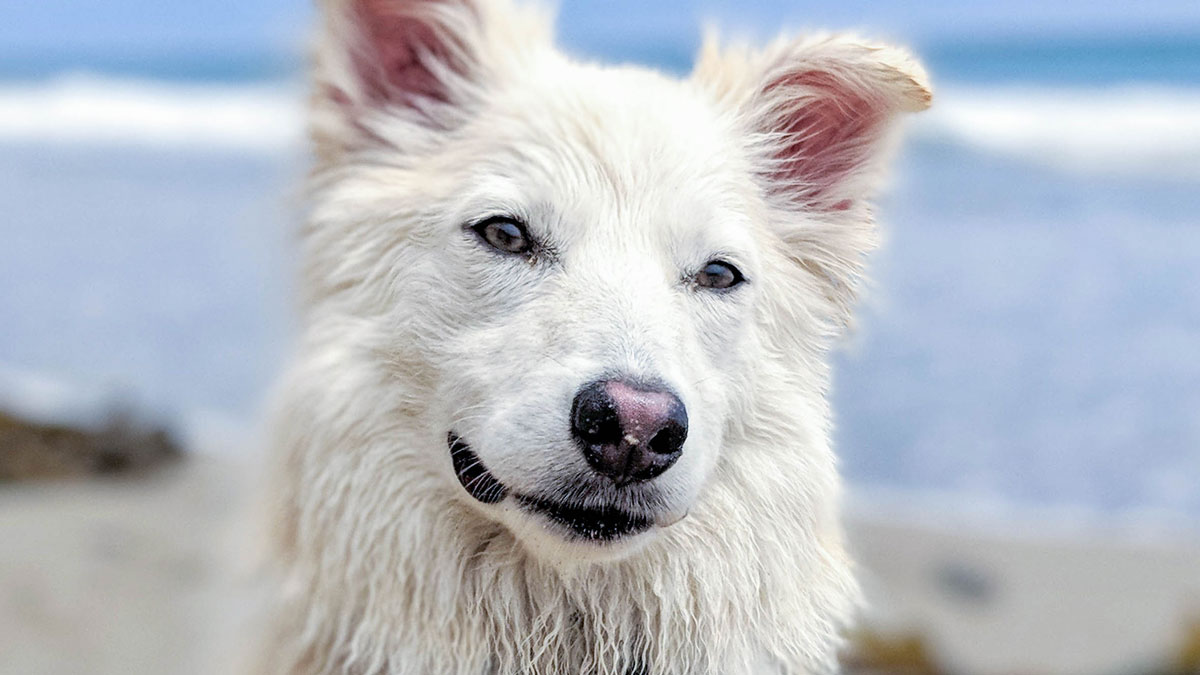Anxious Seeks Canine – Part 17: ‘How do you stop?’
Anxious Seeks Canine is a memoir blog series about a gay man living with Asperger’s, mental illness, and the relationships that may very well be fueling it. Names and identifying details have been changed to protect the privacy of all featured individuals. Except for the dog. Here’s part 1, 2, 3, 4, 5, 6, 7, 8, 9, 10, 11, 12, 13, 14, 15, 16, 17, and 18. Subscribe for more posts.
I
A date had been set: in one week’s time, I would be handing Cash back to his previous owner.
Perhaps the responsible thing would have been to return him to the adoption agency which had entrusted him into my care. But to do so would have required multiple rounds of meet-and-greets with potential owners in Los Angeles’ eastside.
It would mean, in essence, physically fronting up to the fact that I had more or less failed my dog.
But with freedom now in my sights, I found myself abandoning all attempts at “managing” Cash and his many aversions.
Of course, this is not to say I didn’t make more than a few last-ditch attempts at salvaging our relationship.
The first involved doubling our discipline training time; the second saw me holding back Cash’s food until set times each day. The idea here being both would bring him into line.
Perhaps sensing my withdrawal – the release of almost a year’s worth of tension – Cash grew somewhat uncertain, and perhaps a smidge more obedient.
At the suggestion of a friend, I purchased a no-pull lead. The moment I fitted it around Cash’s muzzle, the transfer of power was more or less complete.
Suddenly, I was no longer a slave to my dog’s impulses. Cash walked where I wanted, and moreover, at my pace.
But this change, however welcome, was not enough to tip the balance. My mind had already been made up.
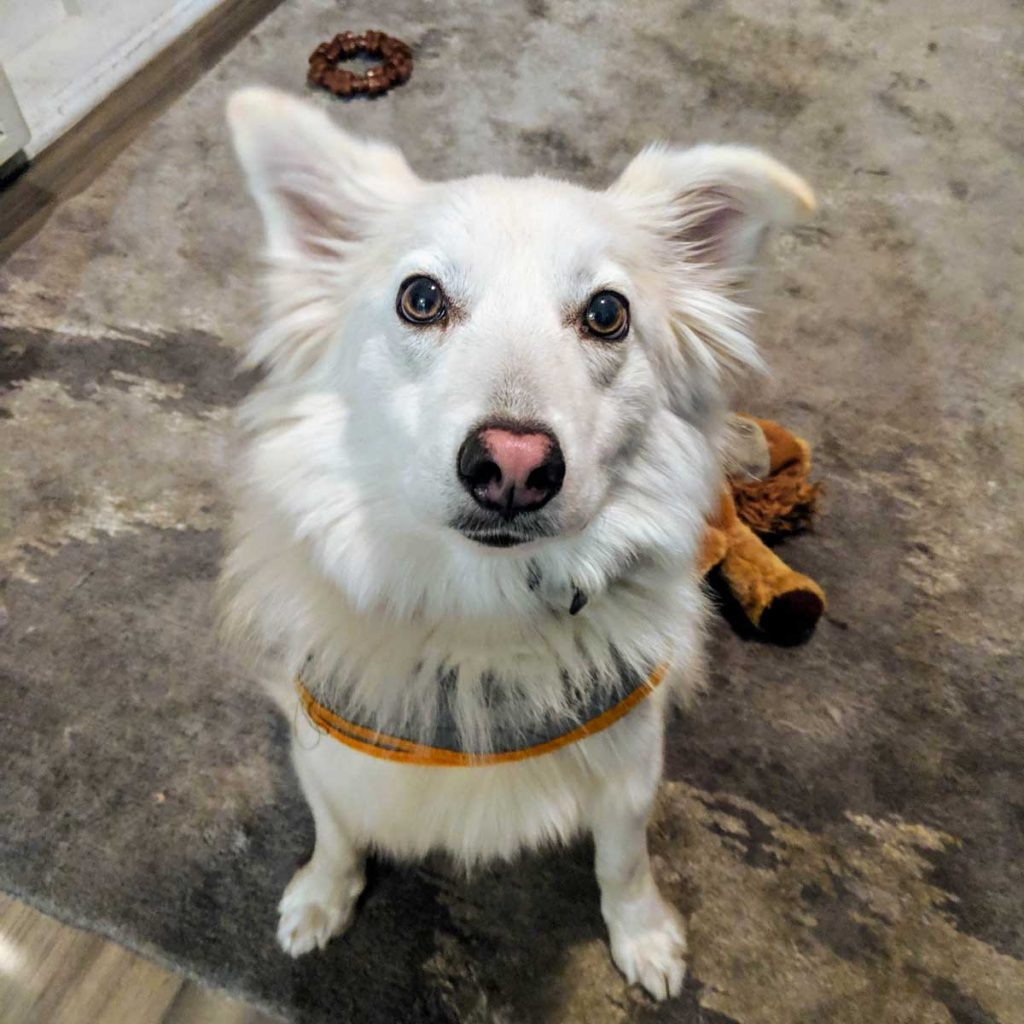
Where before I had held off on employing anti-anxiety medication, come the morning of Cash’s readoption, I didn’t waver.
Squishing a fragment of the pill into a spoon of peanut butter, I offered to Cash. He devoured the snack with relish, smacking his chops.
Half an hour later, he was in a daze, climbing calmly into the backseat of my car. Rather than strangling himself with the belt, as was his habit, my dog instead sat silent and unmoving through the entire car drive.
The site of my and Anja’s meeting was to be a park in Pasadena. After parking and feeding the meter, I walked to the agreed spot, dragging Cash –barking and lunging at squirrels all the while – behind me.
Onwards I marched, staunch in the understanding this was the last time I’d witness such melodramatics.
II
Anja’s silvery head of hair signaled her presence at a nearby park bench.
Seeing me, she gave a smile and wave, and we exchanged a hug.
“So just so you know, Cash is super anxious,” I said as I sat, pulling my still struggling dog up onto my lap.
“I can see that,” Anja laughed.
“He doesn’t really like other animals,” I explained. “And he can get pretty aggressive around other dogs.”
“That won’t be much of a problem,” Anja assured me. “He’s going to be spending most of his time at home, or in the yard.”
“Great,” I said. “He’s got a lot of energy, so the more you can play with him, the better.”
“I’m retired, so I’ll have plenty of time.”
“Also, it’ll help if you read this.” I handed Anja a three-page guide I had prepared a day earlier.
It covered everything from Cash’s training regimen to his feeding habits, containing an exhaustive list of “don’ts”, from the cautionary (“dog parks will send him ballistic”), to the seemingly contradictory (“letting Cash sit on your lap only makes his anxiety worse”), to the gruesome (“expect diarrhea”).
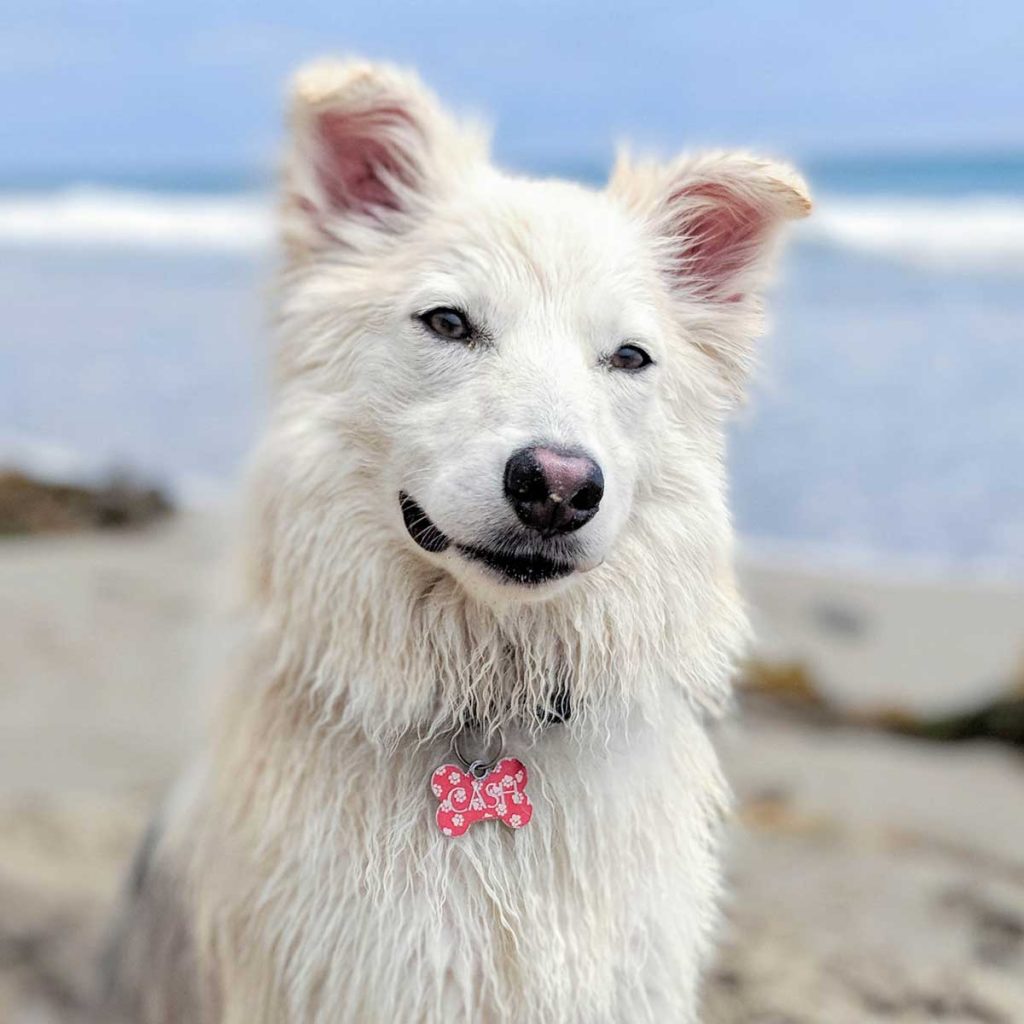
“This is quite a lot,” Anja said, looking over the printout.
“I know,” I apologized. “Cash himself is quite a lot.”
Anja absorbed this with a magnanimous nod. Then came the subject that I knew I must broach, one I sensed might draw a negative response.
“Once he’s settled in,” I began, “would you be okay with me coming to visit him? Just to see how he’s doing.”
“Of course!” Anja beamed. Perhaps seeing the pain in my expression, she added: “As far as I’m concerned, you’ll always be his daddy.”
My guilt thus appeased, I proposed transforming Cash’s bed and various other belongings to her trunk.
Afterward, I got Cash secured in the backseat, bending down to offer a farewell.
“Okay, Cash,” I said. “I’m leaving now. Like, forever.”
Cash didn’t seem altogether that interested in this bombshell revelation; didn’t so much as look me in the eye. When the sense of impending loss did not hit me, I kissed him on the forehead and shut the door.
Only then did Cash sit up, peering at me through the glass in what I guessed was his first inkling of abandonment.
Clutching Anja’s reassurances to me, I drove home in silence. I’d been dreading this whole event for weeks, and now, at last, it was over.
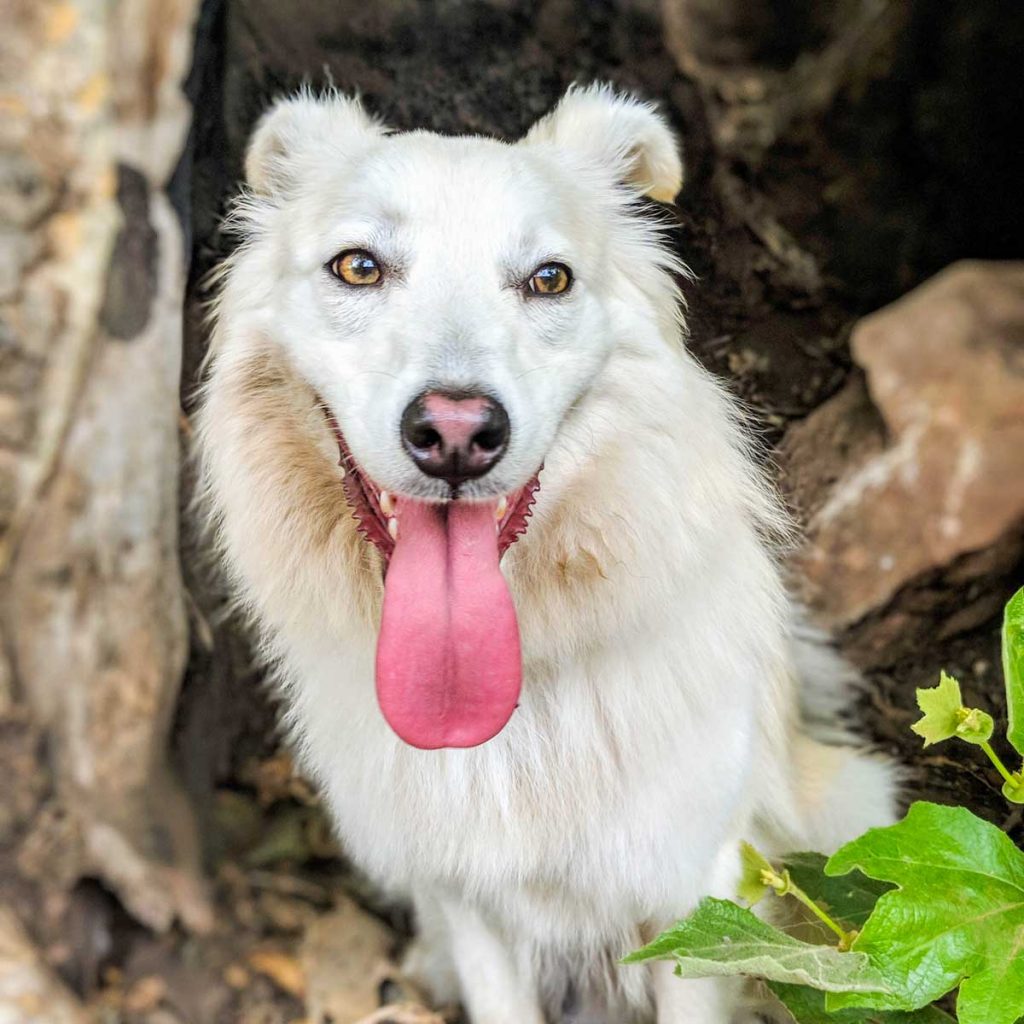
III
The moment I got through the door to my apartment, I began to bawl, great gusty sobs drawn up from the pit of my being.
Suddenly no longer able to repress my emotions I had been keeping at bay for weeks, months, and years, I let them run unchecked.
The loss of childhood pets, schoolyard bullying, the breakdown of my family – all of the suffering and grief I’d never felt safe feeling, let alone expressing, was now given vent.
Engulfed, I crawled into bed, pulled up the covers, and wailed into my pillow. Then came questions to an apparently merciless god, questions that would surely have done my angsty teen self proud.
“Why?” I cried. “Why do I always lose everything I love? Why must I suffer like this? I’m begging you, just tell me. Please.”
From out of my sobs came the realization that I had indeed loved Cash; had loved him in the only broken way I’d known how to. Long after these animal noises had dissipated, that realization remained, an abiding truth.
For all the hardships, it was hard to dismiss the little brilliant moments in between, bonding over tricks, sharing hikes, a road trip to Three Rivers.
In these moments, Cash and I had both been at our happiest. Where he had felt safety and a sense of purpose, I had felt relief and pride in the progress we’d made together.
Part of me wanted to silver-lining the ultimate outcome. Cash had now been granted the benefit of a new beginning, and I the chance to focus on the career change to which I’d been pinning all my hopes.
But without a dog to tend to, I found myself relinquishing busyness as a state of existence. Depression hit like an eighteen-wheeler, and I went down, reduced to a quivering, helpless mess.
When I was finally able to pull myself together, days later, I was walking in a slow, crooked way, my body right-angled as if it were trying to shrink from invisible blows.
Seeing the signal fires of my distress, my therapist summoned me to an emergency session.
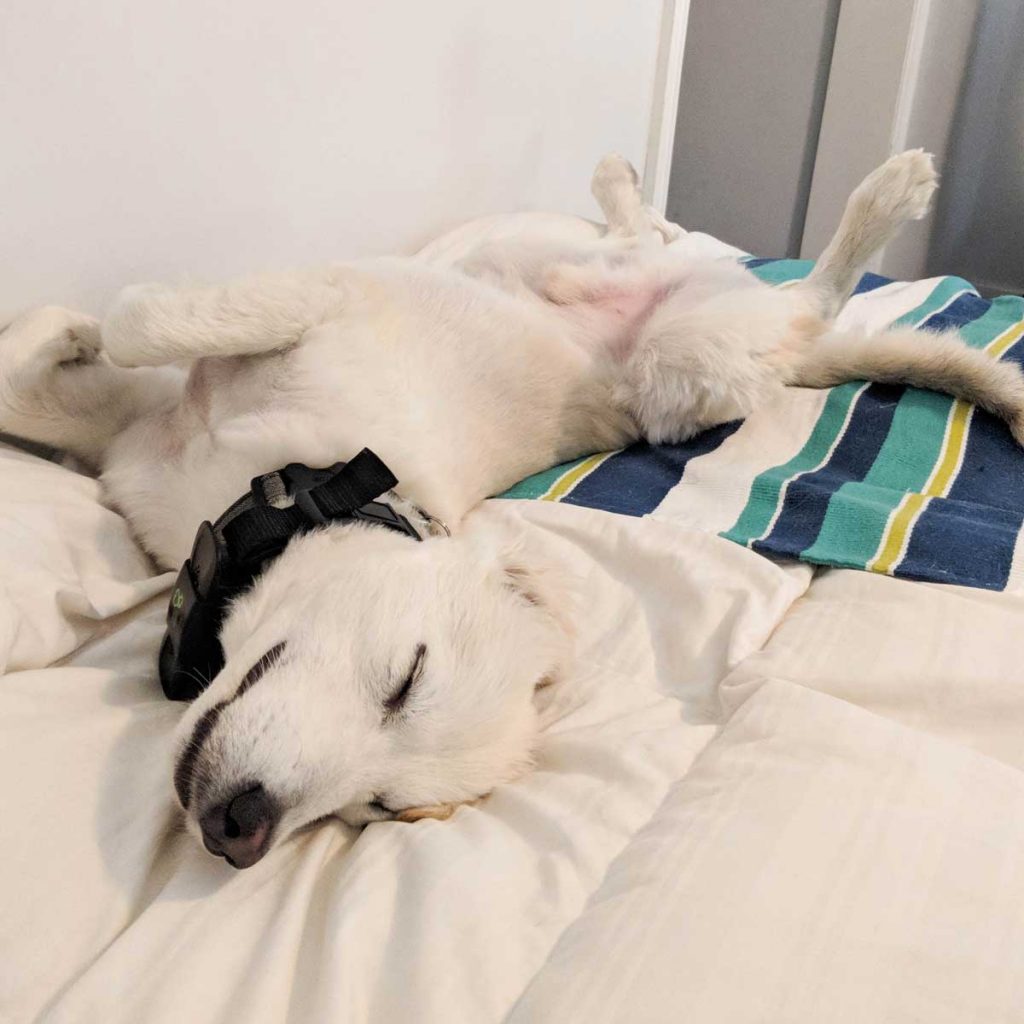
IV
“How do you stop?” I asked from where I sat on Dr. Ihekweme’s couch, a blanket draped over my knees.
How, indeed, when for years your idea of survival was little more than blind forward momentum?
Dr. Ihekweme’s eyes seemed to turn inward as he considered my question. After a moment, they resumed focus.
“Tea?” came the gentle offer. I nodded.
Dr. Ihekweme fixed me a mug of vanilla rooibos, chewing all the while over my inquiry.
“It seems,” he said, handing me the mug, “that there is another question behind the question.”
Eerie, this intuiting of my thoughts. Dr. Ihekweme perched on the arm of his chair.
“Your way of surviving, your workaholism, has failed you,” he noted. “You are at a crossroads now. You want to know what the alternatives are.”
He was right. Over the course of our therapy, I had pushed Dr. Ihekweme for diagnoses and treatments, and he’d held off.
His duty, as he saw it, was to be a soft landing for painful feelings.
What my therapist wanted was to wean me off dysfunction; to gently coax me into surrendering black-and-white thinking and self-fulfilling prophecies; to teach me to accept life’s many ambiguities.
For all my recognition of the suffering I had experienced, I hadn’t quite been ready to process it all. Clear answers and tangible solutions were demanded, when what the situation really called for was mental breathing room.
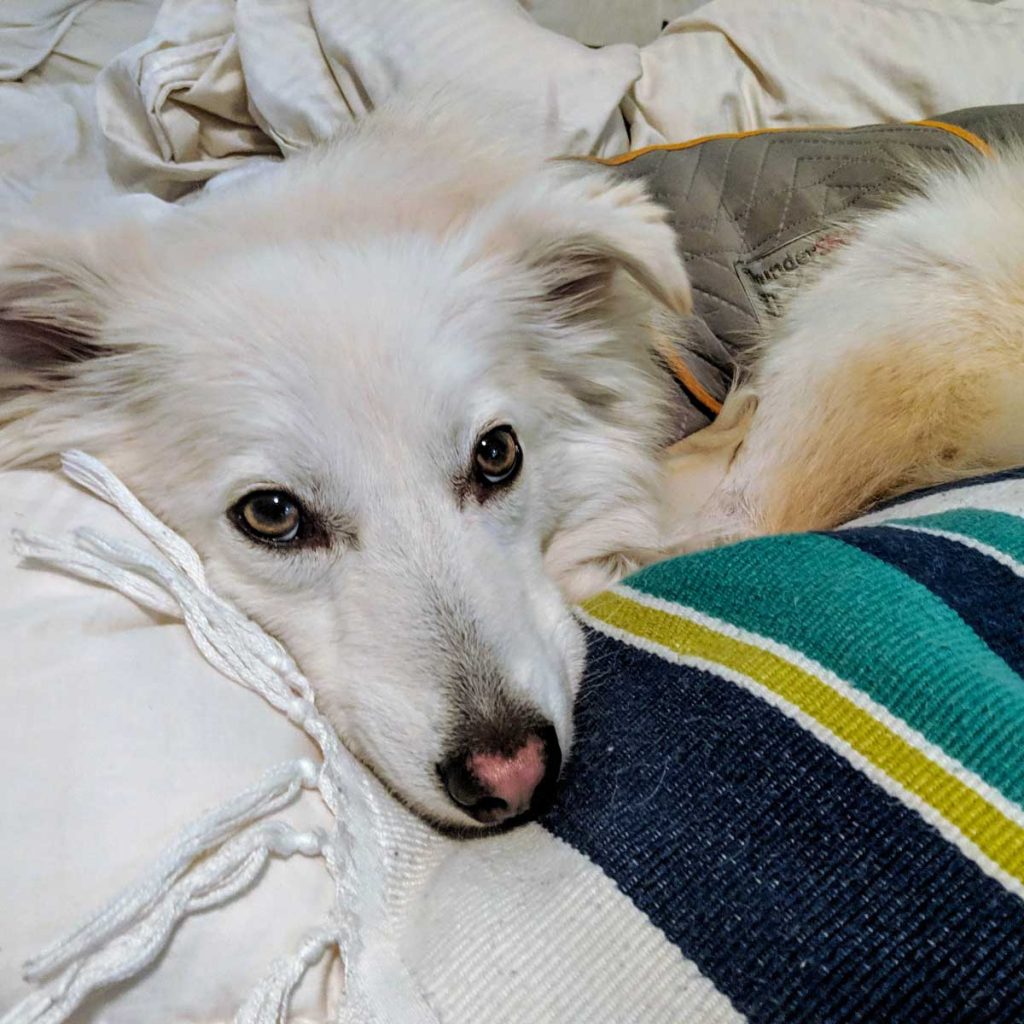
But with Cash gone, and me beholden to another sort of black-eyed dog entirely, I could at least see the futility of quick-fix solutions. And yet…
“I just need this depression to be over,” I said.
“The depression is just a symptom,” Dr. Ihekweme reminded me. “It is the same with your anxiety.”
“I don’t want to spend the rest of my life running,” I clarified.
“You want peace of mind,” my therapist added, and I knew what he was going to say next.
“… You’re going to tell me I need to meditate, aren’t you?”
A smile touched the doctor’s lips. My complaints about mindfulness weren’t exactly unknown to him.
“Well,” he began, “as you said yourself, that didn’t work for you before.”
But now?
Anxious Seeks Canine continues with Part 18: ‘It’s not his fault’.

Essy Knopf is a therapist who likes to explore what it means to be neurodivergent and queer. Subscribe to get all new posts sent directly to your inbox.
© 2025 Ehsan "Essy" Knopf. Any views or opinions represented in this blog are personal and belong solely to the blog owner and do not represent those of people, institutions or organizations that the owner may or may not be associated with in professional or personal capacity, unless explicitly stated. All content found on the EssyKnopf.com website and affiliated social media accounts were created for informational purposes only and should not be treated as a substitute for the advice of qualified medical or mental health professionals. Always follow the advice of your designated provider.


